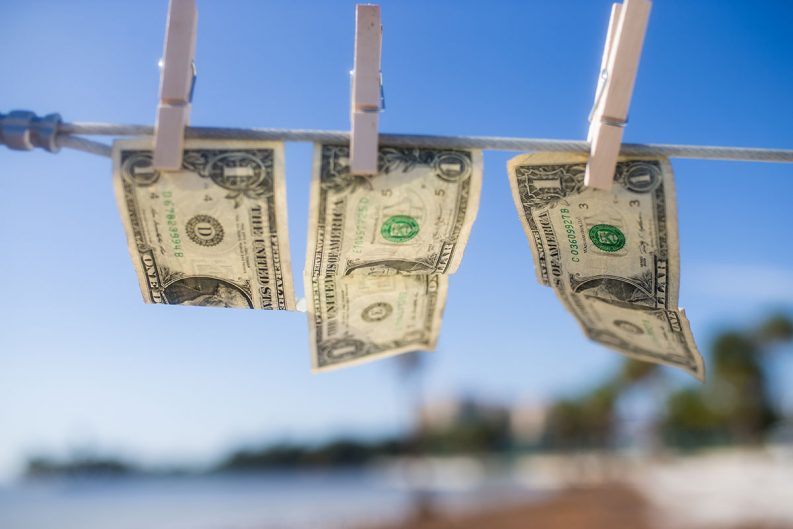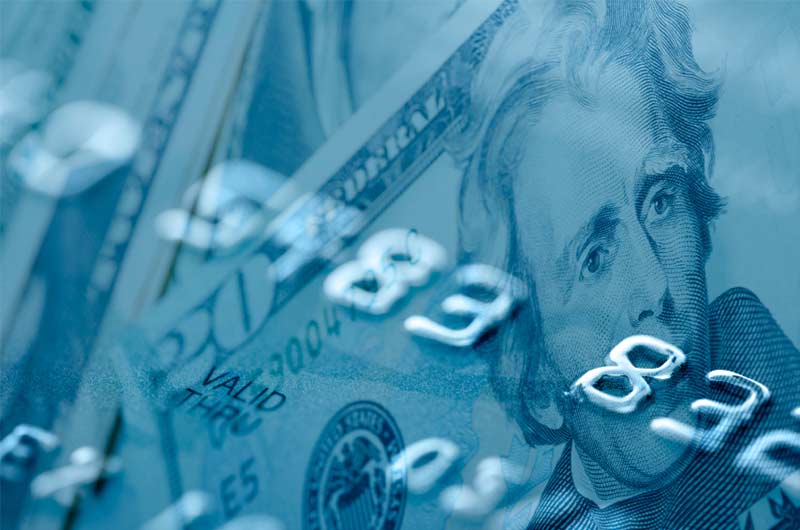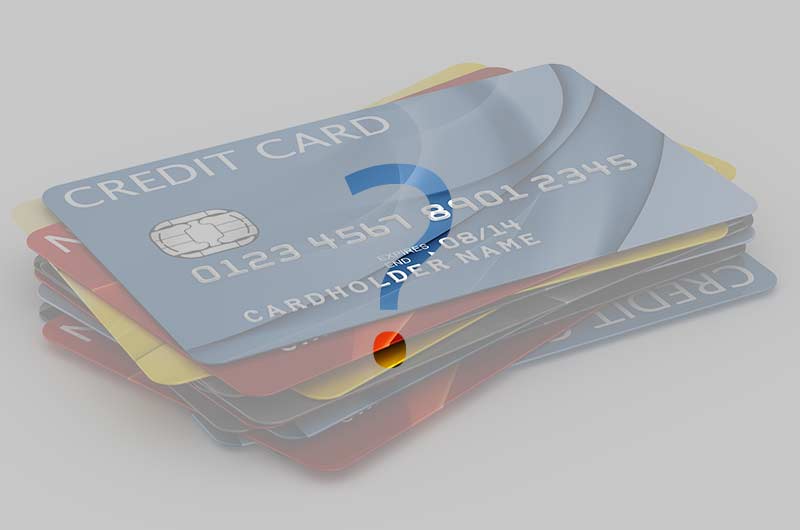Can Secured Credit Cards Be Garnished?
If you're facing debt collection, your wages and bank accounts could be at risk. The creditor is going to look into any funding that could be used to replenish the debt owed. What about funds on a secured card? Can secured credit cards be garnished? Let's study whether secured cards are protected from garnishment.

Secured Credit Cards Can Be Garnished, But It's Unlikely
The money you provide for your security deposit is considered a garnishable asset. But that doesn't mean that it will be garnished. In fact, there is a fairly slim chance your security deposit will be seized in the event of a garnishment. Here's why:
- If the security deposit is held in a bank account, it is protected by a bank account exemption. The value for this exemption varies by state, but it protects a certain amount of money in your accounts. If you have funds in the account that exceed the exemption amount, those could be garnished. Most security deposits are not high enough to qualify for garnishment.
- It is expensive for a creditor to garnish funds from a credit card company. It costs about $100 for each attempt, and many garnishments require multiple attempts to be successful. If you only have $300 in non-exempt funds available for collection, the creditor may see collection as a wasted effort.
- You'll get advanced warning if a creditor pursues a garnishment judgment. This gives you time to work out a payment arrangement or settle your debt with the creditor. You don't have to worry about your money disappearing without warning. You'll be notified in advance if this is going to occur.
- The creditor has to know you have a secured credit card. Most debt collectors will want to confirm you have a bank account, secured credit card, etc. before they attempt to garnish it. If you do not provide them with this information, they won't know for sure that the account is actionable.
- The funds in a secured card account are fleeting. You can easily cancel your card and receive your money back, or spend the funds and cancel the account afterward. Either way, the creditor will have to pursue garnishment at the perfect time to pull funds from the account. Most will avoid this hassle due to the liquidity of the funds on the card.
- Other funds are easier to access. Putting a garnishment on a secured credit card requires more effort, hassle and steps than other forms of garnishment. A creditor is more likely to pursue another method of repayment that it easier to complete.
As you can see, secured credit cards can be garnished. They just aren't desirable enough for most creditors to focus on. Unless you have a high security deposit and already have a judgment issued against you, your secured credit card is not at high risk of garnishment.
Top Secured Credit Card Offers
There are a number of attractive secured credit cards on the market. Here are some of the top secured card offers from SecuredCardChoice.com:
PCB Secured Visa®
The PCB Secured Visa® supports security deposits between $200 and $1,000 within the first year. In the second year, that value increases to $5,000. The card comes with 24/7 account support, and payments are reported to all three credit bureaus.
Applied Bank® Secured Visa® Gold Preferred® Credit Card
The Applied Bank® Secured Visa® Gold Preferred® Credit Card features a low fixed APR of 9.99%, along with a $48 annual fee. No credit check required for approval, and you can find out your approval status within minutes online.
First Progress Platinum Prestige Mastercard® Secured Credit Card
The First Progress Platinum Prestige Mastercard® Secured Credit Card offers a variable 9.99% APR and a $49 annual fee. Payments are reported to all three credit bureaus, and deposits can be as high as $2,000.
Can Prepaid Cards Be Garnished?
Prepaid cards function similarly to secured credit cards, but they do not offer the added bonus of helping you build credit. If you're looking for somewhere to store your money, you may wonder if prepaid cards are a sound alternative.
Some types of prepaid cards can be garnished, but most cannot. Here is a breakdown of how each prepaid card category is viewed:
- Reloadable prepaid cards with cash value can be garnished. A good example of this would be a Green Dot or NetSpend card that you can load with funds at any time. These cards may still be subject to certain garnishment exemptions, depending on your state laws.
- Nonreloadable prepaid cards with cash value cannot be garnished. This includes most Visa prepaid cards, where the funds on the card can not be replenished after use. Reloadable prepaid cards are typically tied to a person's Social Security Number, but nonreloadable cards are not.
- Store gift cards cannot be garnished. This includes reloadable and nonreloadable store cards. Gift cards do not have a direct cash value because they can only be used at a specific store. Thus, they cannot be garnished after a judgment.
Note that a prepaid card tied to your Social Security Number does not impact your credit. This personal information is used to protect against identity theft and to ensure that the funds on the card are protected if the card is stolen. Much like with a secured credit card, most creditors will not go through the effort of garnishing funds from a prepaid card because it creates more hassle than it's worth.
How to Avoid Wage or Bank Account Garnishment
If you are worried about wage garnishment, bank account garnishment or secured credit card garnishment, here are some tips to protect your finances:
- Negotiate a payment arrangement with your creditors. This is the easiest way to avoid garnishment and stop the negative marks from appearing on your credit report. Determine how much you can realistically afford to pay each month toward the debt, and present your proposal to the creditor. If you can pay off at least half of the debt, you may be able to settle for a reduced total. No matter what, consistent communication is key in this case.
- Work with a credit counseling agency. You can get professional advice on how to specifically tackle the type of debt you have. You might qualify for debt consolidation. Your agent can create a personalized plan based on your debt types, income, and other factors.
- Make your monthly payments on time. This includes payments on the outstanding debt and all other debts you may have. Your payment history makes up 35% of your FICO credit score, and making on time payments is an important factor in this history. Even if you can only make your minimum payments, you'll keep your accounts in good standing.
- Dispute inaccuracies on your credit report. If a creditor is trying to collect payment that you do not owe, file a dispute with each credit bureau. You can also contact the creditor to resolve the matter or put a credit freeze on your Social Security Number. This will prevent anyone from using your SSN for a credit application until you remove the freeze.
- Research the garnishment laws in your state. These laws are unique to your area and determine what protections you have from garnishment. Look into your local guidelines to understand exactly what this process may entail.
- Avoid the actions that led to your current predicament. Why are you at risk of having your wages or bank accounts garnished? What actions led to this situation? Evaluate your past choices, and take proactive steps to avoid them in the future.


